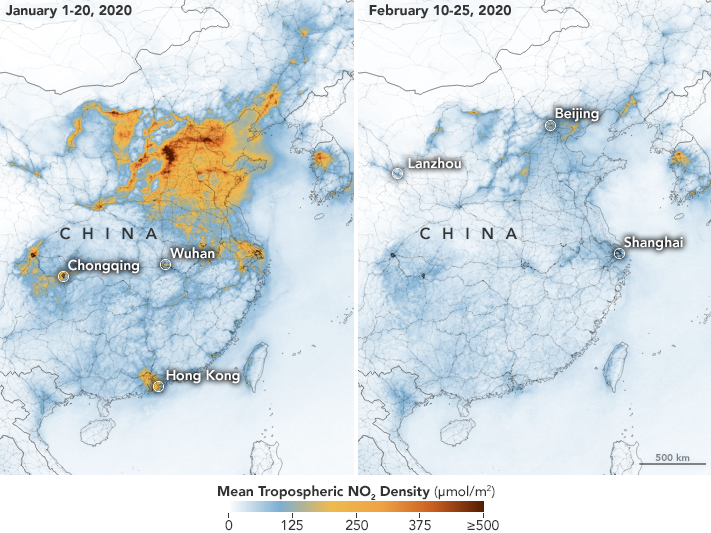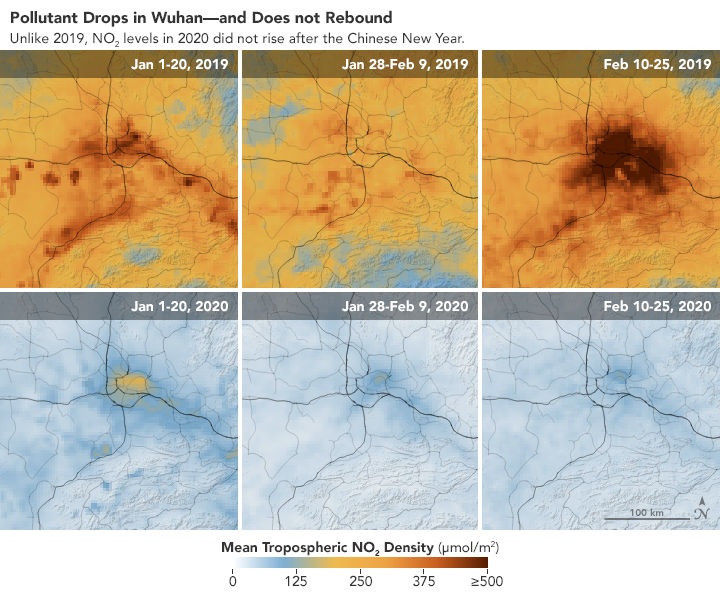Coronavirus: Space images reveal drastic fall in pollution over China as factories closed
‘This is the first time I have seen such a dramatic drop-off over such a wide area for a specific event,’ says Nasa scientist
Satellite images show a dramatic drop in pollution over China after the coronavirus outbreak shut down swathes of the country’s industry and travel.
US space agency Nasa said the change was at least partly related to the economic slowdown caused by efforts to contain the virus.
Nasa maps show how levels of nitrogen dioxide, a toxic gas from vehicles, power plants and factories, plummeted after the mass quarantine, compared with before.
Scientists have previously found the coronavirus wiped out at least a quarter of China’s emissions of damaging greenhouse gases in just two weeks in mid-February.
Closing industrial plants and asking people to stop at home has led to sharp drops in the burning of fossil fuels — a key cause of the climate crisis — in the world’s largest greenhouse gas producer.

China, where the outbreak began, has nearly 80,000 cases of coronavirus, by far the largest number of any country, with nearly 2,900 deaths.
Nasa’s maps compare pollution levels between the first three weeks of the year and 10-25 February.
The space agency’s scientists said the fall in pollution was first apparent near Wuhan, the source of the outbreak, but eventually spread across the country.
“This is the first time I have seen such a dramatic drop-off over such a wide area for a specific event,” said Fei Liu, an air quality researcher at Nasa’s Goddard Space Flight Centre.
She said she had seen a decline in nitrogen dioxide levels during the economic recession of 2008 but said that decrease was more gradual.

Join our commenting forum
Join thought-provoking conversations, follow other Independent readers and see their replies
Comments
Bookmark popover
Removed from bookmarks